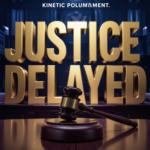Deaf charities have slammed the Scottish Government for slow progress on fixing audiology services, two years after a major review exposed deep problems. Groups like the Royal National Institute for Deaf people, National Deaf Childrens Society, and others sent a joint letter urging faster action on Monday, marking the anniversary of the 2023 independent review that found widespread issues in care for children and adults.
Background on the Crisis
The trouble started with a 2021 audit of NHS Lothian by the British Academy of Audiology. It revealed serious failures affecting hundreds of children, leading to delayed diagnoses and lifelong impacts.
This sparked a national review announced in 2022 by the Scottish Government. The full report came out on August 25, 2023, highlighting problems across all health boards in Scotland.
The review pointed to a lack of planning, poor training, and no strong national oversight. It called for big changes to improve hearing care for everyone.

Key Findings from the Damning Review
The 2023 review uncovered multiple systemic issues that hurt patients. It found inconsistent standards, weak quality checks, and not enough staff with proper skills.
One big problem was delays in spotting hearing loss in kids. In NHS Lothian, the average age for diagnosis was over four years old from 2009 to 2018, far behind Englands average of just 109 days in 2018.
The report also noted poor data sharing and outdated equipment in many areas. These issues led to missed chances for early help, like hearing aids or implants.
Here are some core problems listed in the review:
- Lack of workforce planning, causing staff shortages.
- Inadequate training programs for audiologists.
- No national system to track and improve service quality.
- Gaps in support for adult patients with hearing needs.
Charities Raise Alarms on Delays
In their joint letter to Public Health Minister Jenni Minto, the charities said progress has been too slow. They claim third sector input and voices from people with lived experience have been pushed aside.
Groups like the National Deaf Childrens Society and the Health and Social Care Alliance Scotland stressed that some children now wait over 600 days for initial assessments. This delay can harm speech development and education.
The letter calls for more ambitious steps to fix these issues. It warns that without quick changes, more families will suffer long term effects.
Charities also pointed out that while the government accepted all review recommendations in late 2023, real action has lagged. They want better funding and clearer timelines for improvements.
Government Steps and Ongoing Challenges
The Scottish Government responded to the review by setting up a national group to oversee changes. In December 2023, they outlined initial plans, including better training and data systems.
Recent updates in 2025 show some progress, like new guidelines for pediatric care. But waiting times remain high, with reports of two year waits for hearing aids in some areas.
A 2025 progress report on social care inspection mentioned related efforts, but audiology specific fixes are still rolling out slowly. Budget pressures and staff shortages continue to slow things down.
This table shows key timelines in the audiology saga:
| Year | Event | Impact |
|---|---|---|
| 2021 | NHS Lothian audit reveals failures | Affected 887 children, 155 seriously |
| 2022 | National review announced | Aimed to check all Scottish health boards |
| 2023 | Review published with recommendations | Called for national oversight and training |
| 2025 | Charities letter on slow progress | Highlights waits over 600 days for kids |
Impact on Families and Patients
Families have shared tough stories of how delays changed their lives. Some children missed key early years for language skills because hearing loss went unnoticed too long.
Adults face similar waits for services, leading to isolation and mental health struggles. Experts say early intervention can prevent these problems, but current gaps make it hard.
In Scotland, about one in five people have some hearing loss, per recent health data. Without faster fixes, this could strain the NHS more as the population ages.
Charities note that better audiology could save money long term by reducing needs for later intensive care.
What Needs to Happen Next
Experts agree that Scotland needs stronger national leadership on audiology. This includes more funding for staff and tech upgrades.
The charities letter pushes for a clear action plan with deadlines. They want regular updates and real involvement from affected communities.
As waiting lists grow, pressure is building on the government to act. Recent NHS data from 2025 shows overall improvements in some areas, like emergency care, but audiology lags behind.
Share your thoughts in the comments below if you have faced similar issues with hearing services. Spread the word by sharing this article to raise awareness and push for change.


















